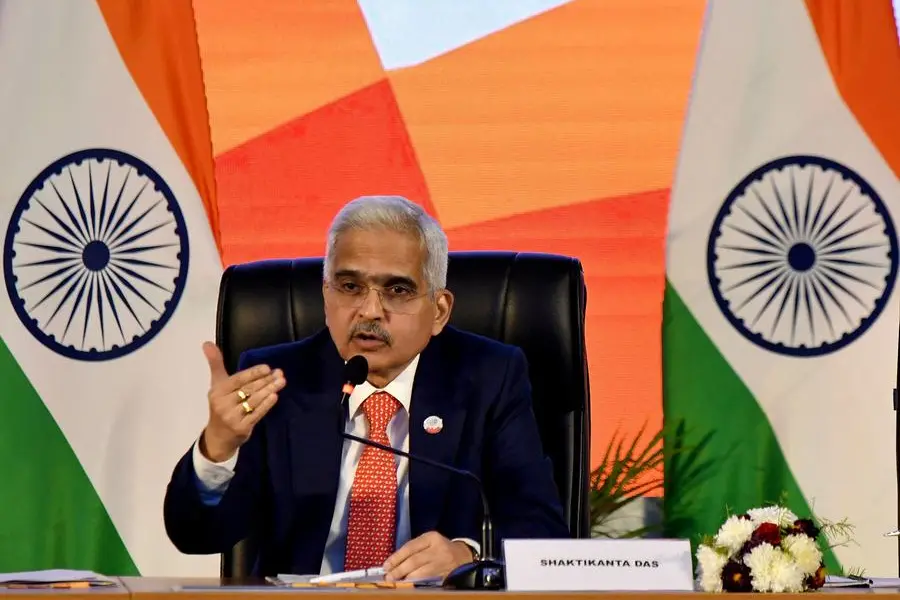PHOTO
India's current monetary policy is appropriate with growth holding firm and inflation trending down to the target, Reserve Bank of India Governor Shaktikanta Das said in the minutes of the February monetary policy meeting, released on Thursday.
"At this juncture, monetary policy must remain vigilant and not assume that our job on the inflation front is over," said Das.
The six-member Monetary Policy Committee (MPC), comprising three RBI and three external members, left the key repo rate unchanged at 6.50% on Feb. 8 for a sixth straight meeting. The RBI has raised rates by 250 basis points since May 2022.
RBI deputy Michael Patra said elevated food inflation has strained private consumption, which accounts for 57% of the GDP. "This is particularly telling in rural areas. Inflation has to be restrained to its target for growth to be inclusive and sustained."
There is a need to remain focussed on achieving the 4% inflation target in a sustained way, said external MPC member Shashanka Bhide.
External member Ashima Goyal added that with growth still robust and recent headline inflation near the upper tolerance band, the MPC could wait a bit longer to ensure that inflation continues its movement towards the target despite geopolitics-related or other commodity price shocks.
External member Jayant Varma, the only dissenter, voted for a 25 bps cut and a change of policy stance to neutral.
"Inflation is projected to average 4.5% in 2024-25, and, therefore, the current policy rate of 6.5% translates into a real rate of 2%," Varma said.
This "creates the very real risk of turning growth pessimism into a self-fulfilling prophecy", he added.
Varma said the government's decision to continue on the path of fiscal consolidation opens up space for monetary easing without risking an inflationary spiral.
"In my view, the time has come for the MPC to send a clear signal that it takes its dual mandate of inflation and growth seriously," he wrote.
Governor Das, however, said as markets are front-running central banks in anticipation of policy pivots, any premature move could undermine the success achieved so far.
(Reporting by Swati Bhat; Editing by Janane Venkatraman)





















